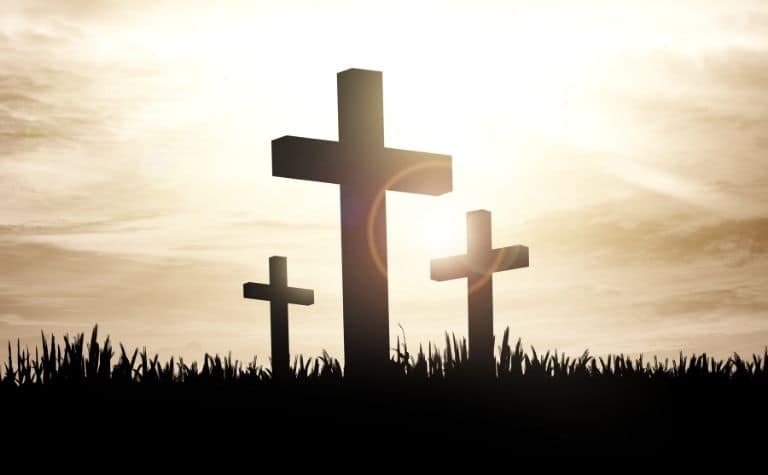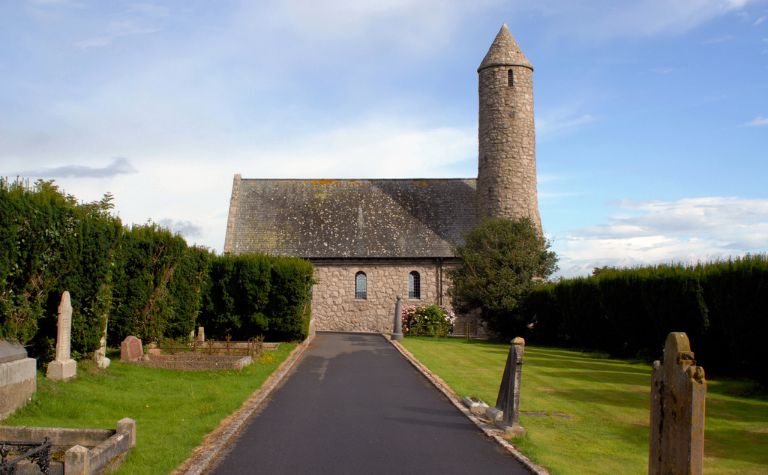Most people associate the terms “Episcopalian” and “Christianity” with churches that worship and promote the teachings of Jesus of Nazareth, as they are recorded in the New Testament. Many people know the terms are related and have significant overlap in meaning but aren’t sure what their differences are.
“Christianity” describes the faith centered on the person, work, and teachings of Jesus Christ. The historical branches of Christianity are Catholicism, Eastern Orthodoxy, and Protestantism. Episcopalianism is rooted in the Anglican tradition, a Catholic-Protestant hybrid that originated in England.
How are the beliefs and practices of Episcopalianism similar to other Christian traditions? How do its origins and values compare? What doctrines of the Episcopal tradition differ from others in the Christian faith? Keep reading to learn the answers to these questions and others.
Also, see Episcopalian vs. Evangelical: What’s the Difference? to learn more.

Episcopalianism and Christianity: Comparison
The Episcopalian tradition is historically part of the Christian faith, yet it is one of many branches. In this sense, all Episcopalian denominations and churches are expressions of Christianity. However, not all expressions of Christianity are Episcopalian.
Catholicism and Orthodoxy are historical branches of Christianity but aren’t Episcopalian. Protestant traditions like Baptist, Presbyterian, Lutheran, Methodist, Pentecostal, and Evangelical are also not Episcopalian. However, because all these expressions are historically Christian, there is agreement among them.
| Episcopalian | Christianity | |
|---|---|---|
| Name | From the Greek word for “overseer” and the Latin word for “bishop,” the term refers to a form of church government that locates ecclesiastical authority in the office of bishop as opposed to the papacy or congregational membership. The term also describes the largest tradition in the Anglican communion in America. | “Christianity” is the name of the faith of Jesus Christ, and a “Christian” is someone who follows him. |
| Origin | The Anglican tradition dates to the time of King Henry VIII (1491-1547) and his protests against the Catholic church. Anglicanism arrived in America as soon as settlers arrived from England. The “Episcopalian” church dates to the time of the Revolutionary War (1775-1783). | Acts 11:26 reads, “And in Antioch the disciples were first called Christians” (ESV). The person and work of Jesus Christ are the foundation of the Christian faith. |
| Branch of Christianity | Because its part of the Anglican Communion, many people consider Episcopalianism halfway between Protestantism and Catholicism. Many theologians and historians posit that a church can’t be “halfway Catholic,” so it’s best to consider the tradition Protestant with aspects of Catholicism woven into certain churches. | There are three historical branches of the Christian faith: Catholicism, Protestantism, and Eastern Orthodox. |
| Early contributors | King Edward VI (1537-1553), Queen Elizabeth I (1533-1603), theologian Richard Hooker (1554-1600) | Jesus’s Apostles, including Paul of Tarsus, wrote 12 of the 27 books of the New Testament. |
Also, see What Do Episcopalians Believe? to learn more.
| Episcopalian | Christianity | |
|---|---|---|
| Organization | The word “episcopal” comes from the Greek word for “overseer” and the Latin word for “bishop.” It refers to a form of church government that locates ecclesiastical authority in the office of bishop as opposed to the papacy, like in Catholicism, or the congregation, like in some Protestant traditions. | Christianity doesn’t have a single leader or organization. Broadly, the Church composes the body of believers, yet the three historic branches disagree on important aspects. For example, Protestants and Orthodox don’t recognize the Catholic pope as the Vicar of Christ. |
| Authority | Historically, Episcopalianism, like the Anglican communion, values the Bible. The tradition affirms the Apostles’ Creed and the Nicene Creed. The Book of Common Prayer is also a pivotal document to the heart and identity of the tradition. | The Catholic and Orthodox traditions locate authority in the Bible and in the teachings of their respective traditions. Protestantism champions the authority of Scripture alone. |
| Divisions | The denomination called the “Episcopal Church” is the largest by a significant margin. Denominations and churches have split over theological, political, and social issues. Examples of contentious topics include women in ministry, allegations of devaluing Scripture, and issues related to same-sex marriage and gender identification. | The three historical branches of the Christian faith (see above) have important agreements, like belief in the Trinity, and disagreements, like ecclesiastical governance. |
| Social worldview today | The “Episcopal Church,” the largest communion in America, is socially and theologically liberal. | The vast majority of Catholic and Orthodox churches are conservative. Some mainline Protestant churches have become more liberal in recent decades. The evangelical wing of Protestantism remains devoutly conservative. |
The Episcopalian tradition in America has different expressions in twenty-first-century America. The denomination called the “Episcopal Church” is the largest by a significant margin.
Denominations and churches have split over theological, political, and social issues. Examples of contentious topics include women in ministry, allegations of devaluing Scripture, and issues related to same-sex marriage and gender identification.
| Episcopal Denominations | Reported Membership |
|---|---|
| Episcopal Church | 2 million |
| Anglican Church in North America | 112,000 |
| Continuing Anglican Churches | 100,000 |
| Reformed Episcopal Church | 15,000 |
Also, see Episcopalian vs. Baptist: What’s the Difference? to learn more.

| Episcopalian | Christianity | |
|---|---|---|
| View of the Bible | Traditionally, the “low church” (see above) has a high view of Scripture in alignment with Protestantism. The “high church” values Scripture plus ecclesiastical tradition. Liberal and progressive congregations have decentralized Scripture. People can read deutero-canonical literature or the Apocrypha, but they can’t be used to establish doctrine. | Most Christian traditions believe God inspired the writing of the Bible. Some have a low view of its relevance for today, and others (especially conservatives), emphasize its authority for all times, even today. |
| View of God | Episcopalians believe in the Trinity; there is one God who exists in three persons. The Father, Son, and Holy Spirit are each fully divine. | All Christian traditions believe in the Trinity, which is so foundational that not believing it renders a person or church decidedly not a Christian. |
| View of Christ | Historically, Episcopalianism has affirmed that Jesus is the second person of the Trinity. He is God in human flesh. He is 100% God and 100% man. Jesus was born of a virgin, lived a sinless life, died as an atonement for sin, was physically resurrected on the third day, and ascended into heaven. | Christian traditions are in general agreement about the person and work of Christ. All acknowledge his life, death, and resurrection. There isn’t agreement about the nature of Atonement, i.e., why Christ died on the cross and what exactly his death achieved. |
| View of Salvation | Episcopalianism’s roots in Anglicanism are closer to Calvinism than Arminianism. However, Arminianism grew to characterize and influence the tradition more. Today, liberal and progressive congregations are ecumenical and inclusive of other religions. | Historically, Christian traditions have agreed that Jesus is the only way a person can be saved (e.g. Acts 4:12). Traditions don’t always agree on how God saves people, as the exact role that people have, and the exact role that God has in the process are the subject of discussion and debate. |
| View of the Holy Spirit | The Holy Spirit is the third person of the Trinity. He is fully divine. Episcopalians are historically cessationists, yet some small communions practice charismatic worship (e.g., International Communion of the Charismatic Episcopal Church). | All Christian traditions are in general agreement about the person and work of the Holy Spirit. Pentecostalism is prevalent in Protestantism but is found only in smaller numbers outside of it. |
Also, see What’s the Difference Between Christian Denominations? to learn more.

| Episcopalian | Christianity | |
|---|---|---|
| View of the Ordinances or Sacraments | All Episcopalian expressions recognize baptism and the Lord’s Supper. Those who have convictions that align with the high church recognize the other five that Catholicism does. The Anglican-Episcopalian tradition teaches that the sacraments are a means of grace, as in Catholicism. | The Catholic and Orthodox churches have seven sacraments. Protestantism only has two, which are the ones that Christ explicitly taught: baptism and the Lord’s Supper. |
| View of the Lord’s Supper | Christ is present in the elements, but there is a mystery to it. The tradition doesn’t fully embrace Catholicism’s theology of the Eucharist but affirms that consuming the elements is more than simply a memorial practice. | There is a variety of views regarding the nature of the bread and cup among Christian traditions. Catholicism holds to transubstantiation, Lutheranism believes in consubstantiation, Presbyterianism believes in the Real Presence of Christ, and the Baptist tradition teaches a memorial view. |
| View of the Baptism | Clergy baptize infants and adults; baptized individuals are “grafted into the church.” | There are a variety of perspectives about baptism in Christian traditions. Some affirm infant baptism and believe it’s a means of grace. On the end of the spectrum, some hold to “Believer’s Baptism” and only baptize professing adults, and don’t believe it’s a means of God’s grace. |
| View of the End Times | Episcopalians believe in the Second Coming of Christ. The tradition’s eschatology is Amillennial, as opposed to Premillennial or Postmilennial. | All Christian traditions believe in the Second Coming of Christ and eternal life in heaven with God. What happens before the Second Coming is the subject of significant debate in Protestantism. Catholicism and Orthodoxy favor Amillennialism. |
Also, see What is the Largest Denomination in Each State? to learn more.
Related Questions
Episcopalian and Baptist are two of the largest branches of the Christian faith in America, though churches belonging to each tradition can also be found around the world. Many people know that...
Many people have heard of the Episcopalian and Methodist denominations but don't know the differences and similarities between their respective churches. People may also be aware that both traditions...
